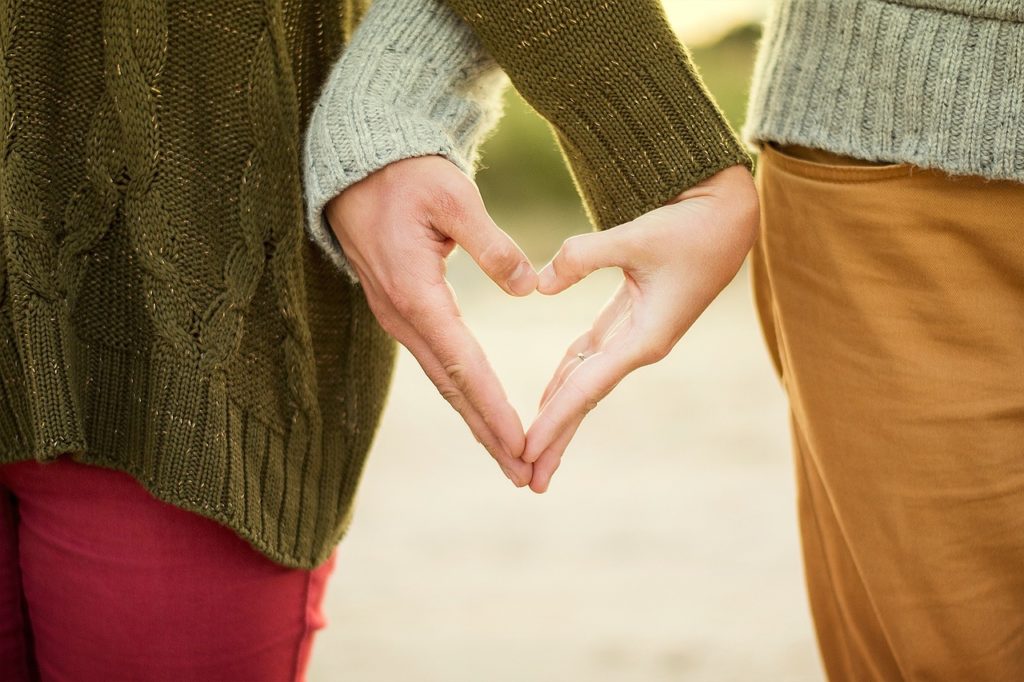- Calls to this hotline are currently being directed to Within Health, Fay or Eating Disorder Solutions
- Representatives are standing by 24/7 to help answer your questions
- All calls are confidential and HIPAA compliant
- There is no obligation or cost to call
- Eating Disorder Hope does not receive any commissions or fees dependent upon which provider you select
- Additional treatment providers are located on our directory or samhsa.gov
Why Valentine’s Day Can Be Difficult for People Who Have Eating Disorders

Contributor: Staff at Montecatini Eating Disorder Treatment Center
Valentine’s Day can be a tough time of year for anyone, especially if you are single, recently went through a divorce, or lost a loved one. But the holiday can cause a lot of pressure to be on the receiving end of someone’s love and affection — and that can be particularly hard on someone who is struggling with an eating disorder.
The Gift of Love
Valentine’s Day is all about celebrating our love for the people in our lives, and many do that through gifts and experiences, like going out to dinner or taking trips. According to the National Retail Federation (NRF), Americans spent more than ever on Valentine’s Day gifts in 2019, even though there’s been a dip in people celebrating the holiday.
“The vast majority of Valentine’s Day dollars are still spent on significant others, but there’s a big increase this year in consumers spreading the love to children, parents, friends, and coworkers,” Matthew Shay, president and CEO of the NRF, said in a 2019 news release.
Americans spent the most on jewelry ($3.9 billion) for that special someone in their lives, followed by an evening out ($3.5 billion), clothing ($2.1 billion), flowers ($1.9 billion), and candy ($1.8 billion). But the most popular gift Americans gave last Valentine’s Day was candy (52%), followed by a Valentine’s Day card (44%), flowers (35%), and that special night out (34%).
But, although Americans planned all this big Valentine’s Day spending, it didn’t mean everyone was on the receiving end of all these gifts. The NRF said there was a major disparity between the number of Americans who would have loved to receive a gift (40%) and those who planned on giving one (25%). That’s a lot of people longing for gifts on Valentine’s Day.
Effects of Valentine’s Day While Struggling with an Eating Disorder
For women who are struggling with the symptoms of an eating disorder, watching those around them being showered with physical signs of love and affection on Valentine’s Day can make it difficult to control the compulsion to engage in disordered eating behaviors.
A study in the Journal of Eating Disorders found that women who reported feeling lower levels of self-love and self-acceptance but higher levels of self-blame were more likely to experience the symptoms of an eating disorder, such as orthorexia, anorexia, or binge-eating disorder.
The authors of the study theorize that some women may be more likely to develop an eating disorder because the way they treat themselves is intertwined with the way they view themselves. Their self-image is ultimately a reflection of how the most significant people in their lives treated them.
For some women, eating disorders can take the place of those significant relationships and the negative roles they play in their lives. “When the [eating disorder] is the most vital relationship one has, it will have an undue impact on the self-image (and vice versa),” Emma Mantilla and Andreas Birgegård, the study’s authors, said.
The way a woman views herself can have a powerful effect on her mental health. Feelings of self-loathing and worthlessness can worsen around Valentine’s Day when reminders of what the ideal relationship is supposed to look like surround women. And if you’re not on the receiving end of all those gifts and affection, it can be challenging to control the compulsion to cope with those negative emotions by engaging in disordered eating behaviors.
You Are Worthy of (Self-) Love
If you are struggling with difficult emotions associated with an eating disorder this Valentine’s Day, take a moment to turn inward to reflect on what you need to support yourself this holiday. You are worthy of love, most importantly, from yourself.
Pausing to take some time for self-care is an essential tool that will help you manage the symptoms you are experiencing. These are just a few ways you can care for yourself this Valentine’s Day:
 Many people who suffer from an eating disorder also struggle with feelings of perfectionism and often compare themselves with others, leading to feelings of negative self-worth. This Valentine’s Day, instead of comparing your relationship status or quality of gifts with those around you, try to focus on the areas of your life that fill you with love and gratitude.
Many people who suffer from an eating disorder also struggle with feelings of perfectionism and often compare themselves with others, leading to feelings of negative self-worth. This Valentine’s Day, instead of comparing your relationship status or quality of gifts with those around you, try to focus on the areas of your life that fill you with love and gratitude.
- We often wait for that special someone to invite us to a Valentine’s Day event or give us a Valentine’s Day gift. But, sometimes, showing other people you care by being the one to dole out gifts or plan an event can lift your spirits when you’re feeling low on Valentine’s Day. Chances are, you may also help someone else who’s having a hard time.
- If Valentine’s Day is a particularly hard time of year for you, reach out to a trusted friend or family member and tell them how you’re feeling. Having a strong support system is an important part of managing your symptoms.
Valentine’s Day can create some complex challenges for people who are living with eating disorders. But by taking the time to love and care for yourself, you can manage the symptoms that make this such a tough time of year.
References:
Mantilla, E. F. and Birgegård, A. (2015). The enemy within: the association between self-image and eating disorder symptoms in healthy, non help-seeking and clinical young women. Journal of Eating Disorders, 3, 30. doi:10.1186/s40337-015-0067-x
Shearman, J.C. (2019, Jan. 30). Fewer consumers celebrating Valentine’s Day but those who do are spending more. National Retail Federation. Retrieved from https://nrf.com/media-center/press-releases/fewer-consumers-celebrating-valentines-day-those-who-do-are-spending.
About Our Sponsor:
Montecatini provides comprehensive treatment for females age 16 and older who are struggling with eating disorders.
The opinions and views of our guest contributors are shared to provide a broad perspective of eating disorders. These are not necessarily the views of Eating Disorder Hope but an effort to offer a discussion of various issues by different concerned individuals.
We at Eating Disorder Hope understand that eating disorders result from a combination of environmental and genetic factors. If you or a loved one are suffering from an eating disorder, please know that there is hope for you, and seek immediate professional help.
Reviewed & Approved on January 15, 2020, by Jacquelyn Ekern, MS, LPC
Published January 15, 2020, on EatingDisorderHope.com

The EatingDisorderHope.com editorial team comprises experienced writers, editors, and medical reviewers specializing in eating disorders, treatment, and mental and behavioral health.

